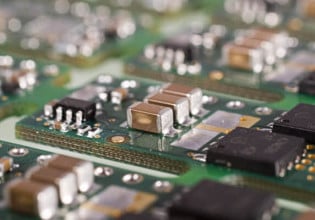TI Launches Kilby Labs To Deliver "Breakthrough" Semiconductor Technology
Texas Instruments Inc. (TI) announced its new "Kilby Labs," described as a center of innovation designed to foster creative ideas for breakthrough semiconductor technology. Launched on September 12, the 50th anniversary of the integrated circuit, the new labs will build on IC inventor Jack Kilby’s legacy of chip innovation.
Kilby Labs will be located on TI’s Dallas North Campus and is inspired by the original TI lab, where Kilby first designed the chip that opened the door to 3G cell phones, portable ultrasound machines and automotive antilock braking systems. The company claims that the new facility, though, will bring together university researchers and leading TI engineers to discover life-changing opportunities for semiconductor technology. From creating new ways to make health care more mobile to harnessing new power sources to enabling more fuel-efficient vehicles, researchers at the Kilby Labs will focus on developing chip advances.
"All of us at TI believe that technologies that significantly impact our lives are the right technologies for our business," said Rich Templeton, Chairman and CEO of TI, at the launch celebration held at the Semiconductor Building on TI’s North Campus. "The power to help make the world healthier, safer, greener and more fun is what gets us excited about chip innovation, and why we come to work every day at TI. It’s what motivated Jack Kilby to build the first IC and why he was able to transform the world through his ideas and inventions."
"Our vision for Kilby Labs," said Gregg Lowe, TI senior Vice President and the project’s executive sponsor, "is that it will combine TI’s experience in developing new chip technologies and our understanding of customer needs with the dreams of a new generation of innovators. Technology springs from imagination, and we want to create an environment where people can both imagine a better world and help build it. The best way we can celebrate Jack’s contributions is by providing people with the opportunity to carry on his work and find new ways for a tiny chip to dramatically improve millions of lives around the world."






